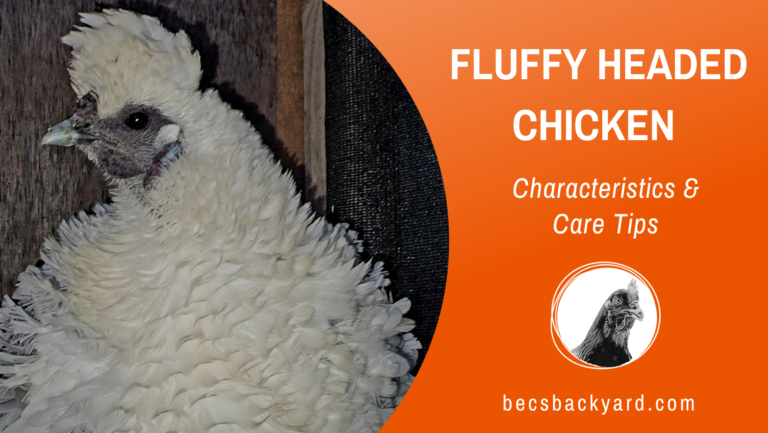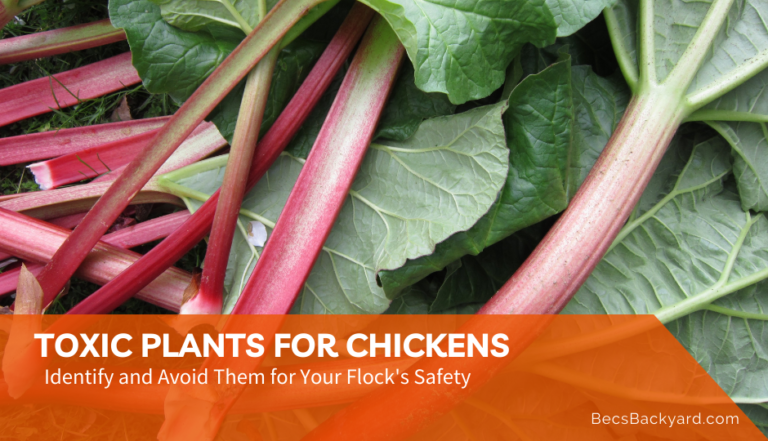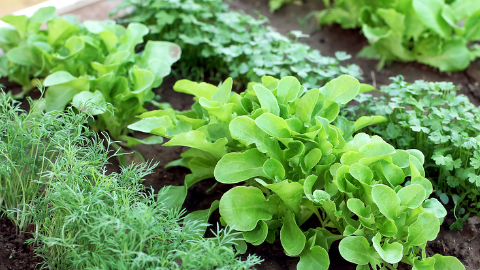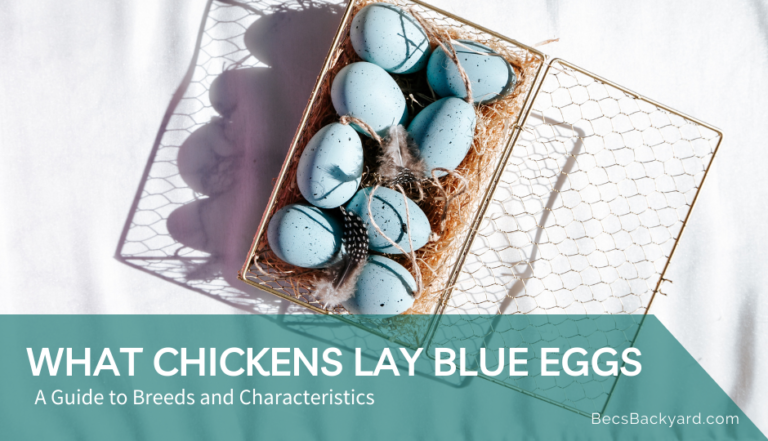12 Chicken Friendly Plants to Grow for Your Flock : A Guide to Feeding Your Feathered Friends

Chickens are wonderful creatures to have around, and they can provide you with fresh eggs and meat. To provide a lifestyle that is fulfilling the needs of your backyard flock it is important to know their requirements. Chickens can have their nutrient needs met through commercial chicken feeds, however there are always opportunities for your flock to eat other things around the yard, so it is best to make sure you have the right plants growing. What plants are good for chickens? Chickens love to eat plants, and there are many varieties that are safe and beneficial for them to consume, let’s look at 12 Chicken Friendly Plants to Grow:
- Cabbage
- Kale
- Berries
- Parsley
- Oregano
- Thyme
- Corn
- Wheat
- Barley
- Dandelion
- Clover
- Chickweed
Growing chicken-friendly plants can help improve the overall health of your flock, as well as provide them with a source of food. Some plants can even help repel pests and insects that can be harmful to your chickens. In this article, we will explore some of the best plants to grow for chickens, including herbs, vegetables, and grains. By incorporating these plants into your chicken’s diet, you can help keep them healthy and happy. what plants are good for chickens

Understanding Chicken’s Dietary Needs
Chickens are omnivores, which means they require a balanced diet consisting of both plant and animal-based foods. A healthy diet for chickens should include a variety of nutrients, including protein, carbohydrates, fats, vitamins, and minerals.
Protein is essential for muscle development and repair, and it can be found in both plant and animal-based foods. Chickens require a high protein diet, especially during the growing and egg-laying stages. Good sources of protein for chickens include insects, worms, seeds, and legumes.
Carbohydrates provide energy for chickens, and they are particularly important during the winter months when chickens need to keep warm. Good sources of carbohydrates for chickens include grains, such as wheat, barley, and oats, as well as fruits and vegetables.
Fats are another important energy source for chickens, and they help to keep their bodies in prime operating condition. Good sources of fat for chickens include seeds, nuts, and animal-based foods such as fish oil and meat scraps.
Vitamins and minerals are essential for overall health and well-being in chickens. Chickens require a variety of vitamins, including A, D, E, and K, as well as minerals such as calcium, phosphorus, and potassium. These nutrients can be found in a variety of foods, including fruits, vegetables, grains, and animal-based foods.
Overall, a balanced diet for chickens should consist of a variety of foods, including grains, fruits, vegetables, seeds, legumes, and animal-based foods. Providing your chickens with a well-balanced diet will help to ensure that they are healthy and happy, and it will also help to promote optimal egg production.
Chicken Friendly Plants to Grow : Vegetable and Fruit Plants
If you’re looking to add some variety to your chickens’ diet, consider growing some vegetable and fruit plants near their coop. Here are a few options that are safe and nutritious for chickens:
1. Cabbage
Cabbage is a great source of vitamins and minerals for chickens, including vitamin C, calcium, and potassium. Plus, it’s easy to grow and can withstand cooler temperatures. You can feed your chickens both the leaves and the core of the cabbage, either raw or cooked. Just be sure to chop it up into bite-sized pieces to make it easier for them to eat.
2. Kale
Like cabbage, kale is packed with nutrients that are beneficial for chickens, such as vitamin A, vitamin K, and iron. It’s also a hardy plant that can tolerate frost and heat. You can give your chickens kale leaves either fresh or cooked, but avoid feeding them the stems as they can be tough to digest.
3. Berries
Berries are a tasty and nutritious treat for chickens, and they’re also easy to grow in many climates. Some good options include strawberries, raspberries, and blueberries. Berries are high in antioxidants and vitamin C, which can help boost your chickens’ immune system. Just be sure to give them in moderation, as they are high in sugar.
When growing fruits and vegetables for your chickens, it’s important to avoid using any chemical pesticides or fertilizers that could be harmful to them. Instead, opt for organic methods or natural pest control techniques. Also, make sure to introduce new foods to your chickens gradually to avoid upsetting their digestive system.
Chicken Friendly Plants to Grow : Herb Plants
Herbs are a great addition to any chicken coop or yard. They not only add a pleasant aroma but also provide health benefits to your chickens. Here are a few herbs that are good for chickens:
4. Parsley
Parsley is a great source of vitamins A, C, and K, and also contains flavonoids that have antioxidant properties. It is also known to help with digestion and stimulate egg-laying in hens. You can add fresh parsley to your chicken feed or grow it in your chicken yard.
5. Oregano
Oregano is known for its antibacterial and antiviral properties, which can help keep your chickens healthy and prevent illnesses. It also contains antioxidants and is a good source of vitamins A, C, and K. You can add fresh or dried oregano to your chicken feed or grow it in your chicken yard.
6. Thyme
Thyme is another herb that has antibacterial properties and can help prevent respiratory illnesses in chickens. It is also a good source of vitamins A and C. You can add fresh or dried thyme to your chicken feed or grow it in your chicken yard.
Incorporating these herbs into your chicken’s diet can provide numerous health benefits. However, it is important to note that herbs should not be used as a substitute for proper nutrition or veterinary care.
Chicken Friendly Plants to Grow : Grain Plants
Grain plants are a great source of nutrition for chickens. These plants are rich in carbohydrates, protein, and fiber, which are essential for the growth and development of chickens. Here are some of the most common grain plants that you can grow for your chickens.
7. Corn
Sweet corn is a delicious treat for chickens. It is rich in carbohydrates and fiber, which are essential for energy and digestion. When growing corn, ensure that there is enough space between rows if you want the plants to thrive. You can also add them to your chicken’s food during the cold season. Corn can be fed to chickens in a variety of ways, such as whole kernels, cracked corn, or ground cornmeal.
8. Wheat
Wheat is one of the most nutritious grains for chickens. It is rich in protein, fiber, and essential vitamins and minerals. You can grow wheat in your backyard, and it is relatively easy to cultivate. Wheat can be fed to chickens in a variety of ways, such as whole wheat, cracked wheat, or ground wheat flour.
9. Barley
Barley is another nutritious grain that you can grow for your chickens. It is rich in protein, fiber, and essential minerals such as iron and magnesium. Barley can be fed to chickens in a variety of ways, such as whole barley, cracked barley, or ground barley flour. It is important to note that barley should be fed in moderation, as it is high in starch and can cause digestive problems if overfed.
In conclusion, grain plants are an excellent source of nutrition for chickens. Corn, wheat, and barley are some of the most common grain plants that you can grow for your chickens. Ensure that you feed your chickens a balanced diet that includes a variety of grains, vegetables, and fruits to keep them healthy and happy.
Chicken Friendly Plants to Grow : Beneficial Weeds
Chickens are omnivorous and love to eat plants, including weeds. Some weeds are not only safe for chickens to eat but also provide essential nutrients. Here are some beneficial weeds that you can allow your chickens to forage:
10. Dandelion
Dandelions are a common weed that most people try to get rid of. However, they are a great source of nutrition for chickens. Dandelions are high in vitamins A, C, and K, as well as calcium and iron. They also have a diuretic effect, which can help keep your chickens’ urinary tract healthy. You can either pull up the whole plant or just pick the leaves and give them to your chickens.
11. Clover
Clover is a highly nutritious perennial that is high in calcium, niacin, potassium, vitamins A and B, iron, and protein. It is also good for respiratory and circulatory health. You can allow your chickens to forage for clover in your yard or plant some in their coop area. They will love it!
12. Chickweed
Chickweed is another weed that is safe for chickens to eat. It is high in vitamin B and is a good source of protein. Chickweed also has a cooling effect on the body, which can be helpful during hot weather. You can either pull up the whole plant or just pick the leaves and give them to your chickens.
By allowing your chickens to forage for these beneficial weeds, you can provide them with a varied and nutritious diet. Just make sure that you are not giving them any weeds that are toxic or harmful to their health.
Toxic Plants to Avoid
When it comes to raising chickens, it’s important to know what plants to avoid as some can be highly toxic to your feathered friends. Here are some plants to steer clear of:
Foxglove
Foxglove is a beautiful flowering plant that contains digitalis, a cardiac glycoside that can cause cardiac arrest, vomiting, and diarrhea in chickens. Symptoms of poisoning can occur within a few hours of ingestion and can be fatal if left untreated. It’s important to keep your chickens away from this plant and to remove it from your garden if you have any.
Rhubarb
While rhubarb is a delicious addition to many recipes, it’s important to keep it away from your chickens. Rhubarb leaves contain oxalic acid, which can cause kidney damage, tremors, and seizures in chickens. Symptoms of poisoning can occur within a few hours of ingestion and can be fatal if left untreated. Make sure to remove any rhubarb plants from your garden or keep them fenced off from your chickens.
Nightshade
Nightshade plants, including tomatoes, potatoes, and eggplants, contain solanine, a toxic alkaloid that can cause gastrointestinal distress, tremors, and seizures in chickens. Symptoms of poisoning can occur within a few hours of ingestion and can be fatal if left untreated. While the fruit of these plants is safe for chickens to eat, it’s important to keep them away from the leaves and stems.
In conclusion, it’s important to be aware of which plants are toxic to your chickens and to keep them away from your feathered friends. By avoiding these toxic plants, you can help keep your chickens healthy and happy.
Conclusion
There are many plants that are beneficial for chickens to have in their environment. These plants can provide a variety of benefits, from providing shade and shelter to acting as natural insecticides and providing a source of nutrition.
Some of the best chicken friendly plants to grow near your coop include herbs such as comfrey, fennel, lavender, rosemary, and sage. These herbs not only provide valuable nutrients for your chickens but also have natural properties that can help prevent diseases and mask unpleasant odors.
Vegetables and grains such as amaranth, peas, beans, and legumes can also be great additions to your chicken’s diet. These plants are high in protein and other essential nutrients that can help keep your chickens healthy and happy.
It is important to note that not all plants are safe for chickens to consume. Some plants can be toxic and even deadly to chickens. Always do your research before planting anything near your coop and consult with a veterinarian or other expert if you are unsure about a particular plant.
Overall, incorporating chicken-friendly plants into your coop’s environment can be a great way to provide your chickens with a healthy and enriching living space. With a little bit of research and planning, you can create a thriving ecosystem that benefits both your chickens and your garden.






